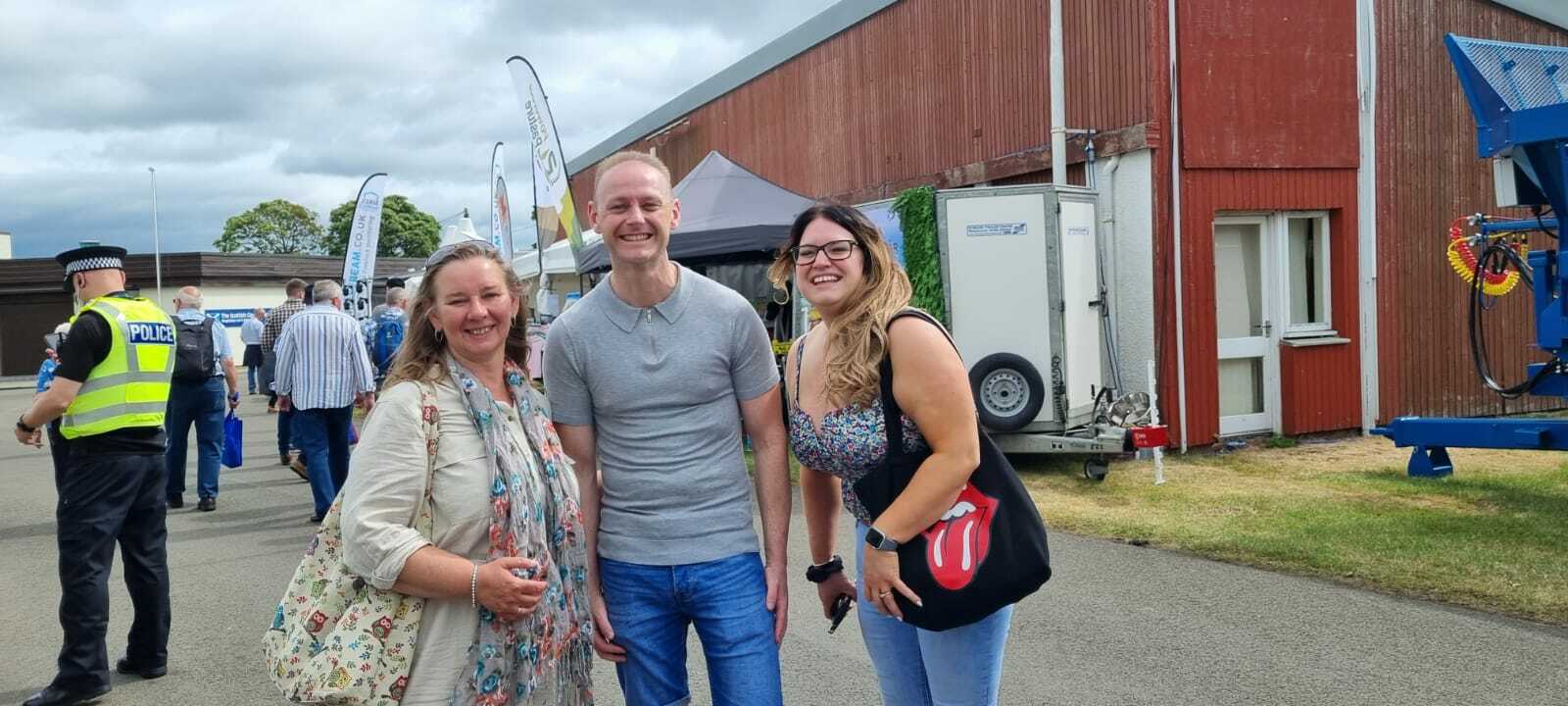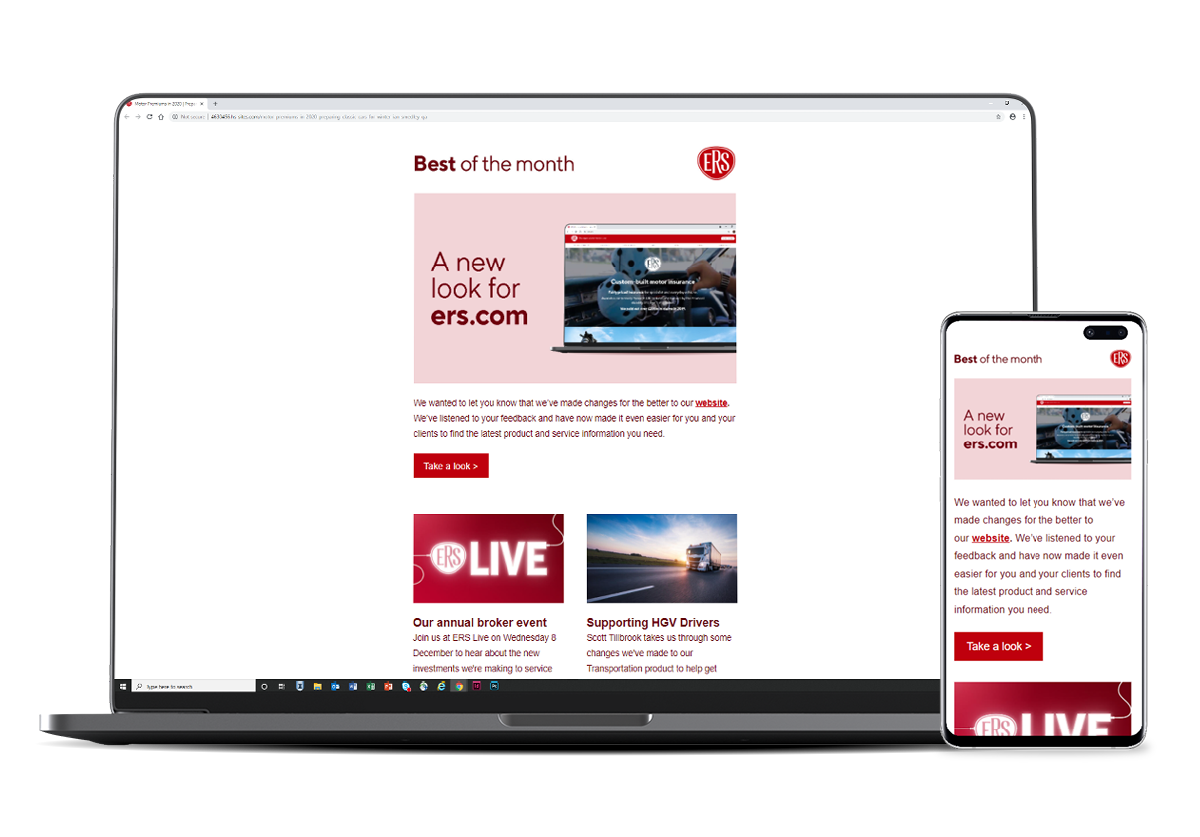If you’ve set foot in Lloyd’s of London during the past decade or so, you may well have come across Edd Moore, our Senior Underwriter for fleet. Edd plays a unique role at ERS, spending the bulk of his time at our trading box in the Lloyd’s building, providing on-the-spot underwriting for fleet brokers. We recently chatted to him about how the market has changed over the years, why genuine underwriting expertise still endures in the sector, and what the future looks like for his specialism…
Describe your current role to us.
I’m primarily responsible for the fleet business that ERS write in the London Market, including the business traded face-to-face in the Lloyd’s of London environment, which is somewhat different to the other underwriting roles within our fleet team.
I joined ERS circa April Fool’s Day 2014, so I’ve been with the business over six years now. Thanks to nearly two decades of familiarity with the Lloyd’s environment, I do occasionally step in to give visitors to the ERS offices a guided tour of the Lloyd’s building, helping provide some historical context to the modern insurance market in which we operate.
It’s certainly a unique place to work. How did you end up on this career path?
Having completed my A-levels, I was keen to do something involving numbers but, I didn’t have a specific job role in mind. Accountancy sounded a bit dry, so I was looking for alternatives when I discovered that the office at the end of our road was occupied by a small Lloyd’s syndicate and the rest as they say is history… My commute to work was certainly somewhat shorter in those days!
My first more senior underwriting role was on behalf of an old motor syndicate called Ensign, who were subsequently purchased by QBE. The Active Underwriter at the time was John Neal, who is now the CEO of Lloyd’s of London itself, which just goes to show what a small world the insurance market can be!
What is it you particularly enjoy about the insurance sector?
In my experience, most people still fall into insurance rather than pursuing it as a career option from the outset, although admittedly many insurers are now doing a much better job of recruiting graduate trainees, etc. Whilst it might not appear the most electrifying career, thanks to the more traditional way I interact with the London Market brokers and the often unusual nature of the risks they present to me, no two days are ever the same.
Despite it being a numbers-based industry, people still buy from people and I enjoy both face-to-face trading with the brokers but, also meeting some of our larger policyholders in person, to get a real understanding of their businesses and insurance needs. I guess the real aim is always to come up with a tripartite agreement that works for all parties, where the premium payable is one of many factors and not necessarily the dominant one.
What does a typical working day look like?
It’s actually changed quite a bit since I first entered the market. Back in the early / mid 2000’s, Lloyd’s days for the fleet market would be Tuesdays and Thursdays and you’d often have a long queue of brokers sat reading books while they waited their turn to present to you!
Post financial crisis, everyone became increasingly time-poor as belts were being tightened, so most people seemed to move toward formal appointment times, often spread out across the whole week. As a result, I generally have back to back appointments at our Lloyd’s box all day long, on most days but I’ve had some adjusting to do since the arrival of COVID-19.
And what are some of the key challenges you face within your role?
I suppose from the outside looking in, one of the biggest challenges is the relatively high volume of risks I am presented with during any given week and the fact that due to the environment in which they are traded, there is an expectation that either a quotation or declinature be given there and then on the spot in most instances. Clearly this is at odds with the general move by all insurers toward a more considered, actuarially driven approach to pricing and it means I have to be on my a-game every hour of the working week to ensure that underwriting discipline is maintained. I guess the best analogy is the way that commodity trading has moved from the apparent madness of open outcry in the trading pits (as depicted in many ‘80’s movies) to the cold, unemotional decision making by computerised algorithms in the modern era. I guess that makes me the guy waving my arms around and throwing bits of paper everywhere, which sometimes isn’t far from the truth…!
What sort of trends are you seeing within the face-to-face traded fleet market?
I guess the story of 2020 has obviously been the impact of COVID-19, which has seen many vehicles being parked up for much of the summer. Like a number of other insurers, ERS have taken a flexible approach toward working with our policyholders, in order to help everyone get through this unprecedented period of volatility.
More broadly, there is a constant trend toward the insurance market in general adopting the “comparison website culture”. Whilst that is all well and good in relation to very generic products such as pet and travel insurance, I’m not quite sure we’re there yet when it comes to the more complex end of the fleet market and these are the risks where involvement of an experienced broker benefits both the policyholder and insurer, to ensure the cover being provided is fit for purpose and equitably priced for all stakeholders.
Given this trend in particular, why do you think ERS continues to appeal to fleet brokers?
Back in the 80’s there were about 40 different motor syndicates in Lloyd’s. Today we’re the only major one left that’s capable of handling non-standard risks across the entire fleet space.
I think the very fact that we’re prepared to consider such a wide range of risks, whilst having the financial security of Lloyd’s sitting behind us is a big factor in maintaining the continuing appeal to brokers who are looking to place fleet business.
What’s the most valuable lesson you’ve learnt in your career to date?
One thing I’ve always found particularly useful to bear in mind is the importance of avoiding ‘paralysis by analysis’. With an industry wide move toward ever more sophisticated pricing systems, sometimes people get so preoccupied by the data in front of them that they forget what they were trying to achieve in the first place. Having reliable and accurate MI is certainly a useful tool to enable the Underwriter to make an informed decision but, I don’t think the underwriting role itself will be consigned to the history books just yet.
What are your passions and pastimes outside of working hours?
I’m a big motorsport enthusiast, both in terms of spectating and indeed getting involved in track days, etc, myself. Last year I belatedly discovered skiing too, thus adding to my list of hobbies that carry plenty of scope for injury !
If you weren’t working in the Lloyd’s building, what would your dream job be?
When I was a child, there were two things that I was fixated with: dinosaurs and astronauts. I’m not sure I could forge much of a career as a dinosaur, so let’s go with the astronaut angle.






